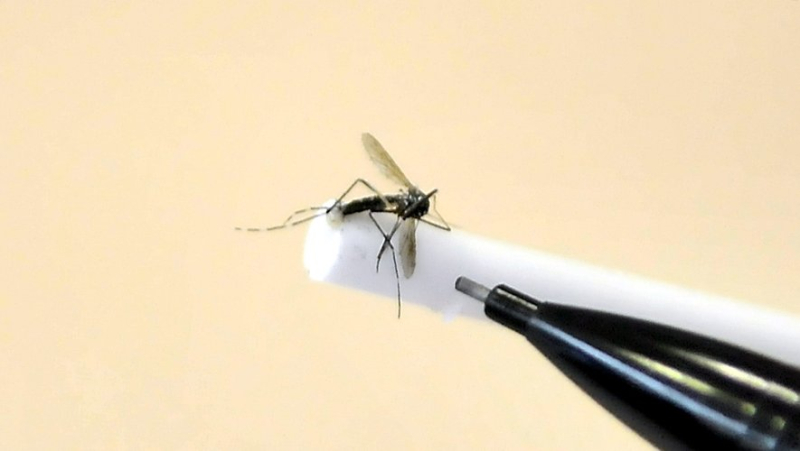Dengue, Zika, chikungunya: the health security agency warns of the “fairly high risk of an epidemic within five years”

Inquiétude croissante autour de la présence du moustique tigre. Midi Libre – Vincent ANDORRA
Le moustique tigre, présent dans 78 départements français, désormais, fait planer la menace d’une épidémie d’arbovirose en Frnace métropolitaine, indique l’Anses, l’Agence nationale de sécurité sanitaire, dans une étude.
It's a chilling scenario. Written as part of a collective expertise of Anses, the national health security agency, at the request of the Directorate General of Health, it projects metropolitan France into an almost certain, and very imminent, epidemic within five years of dengue, Zika or chikungunya, these arboviruses linked to the presence of the tiger mosquito.
“At present, experts estimate that an epidemic of arbovirus, all viruses combined, has a probability of between 6 and 7 on a scale of 0 to 9 of occurring in the next five years”, concludes Anses, which points out that the “tiger” is now present in 78 departments of mainland France, due to climate change and rising temperatures.
Dengue fever is being monitored particularly closely: “In 2022, there were 66 autochthonous cases of dengue fever, i.e. people who became infected locally, which is as many as the total number of autochthonous cases over the previous ten years.”
Already 46 autochthonous cases of dengue fever in 2024
As of September 11, 2024, an inventory by Public Health France reported 46 autochthonous cases of dengue fever in mainland France and five autochthonous cases of chikungunya.
"In the event of an epidemic, the means of prevention and control of arboviruses could be rapidly saturated",alert, based on discussions with stakeholders involved in vector monitoring and control, Véronique Raimond, health economist in the Social Sciences, Economics and Society Department of ANSES, coordinator of the study with Émeline Barrès, from the Risk Assessment Department of the agency.
The experts thus estimate that "that the health system would be under strain in the event of a major epidemic", with "a risk of saturation" which would put "the most disadvantaged" on the front line: "Epidemics are known to worsen social inequalities."
An impact on tourism
On the economic level, while it is "unlikely that an arbovirus epidemic in France would have a major impact on the global economy", it "could weaken certain sectors", particularly tourism.
#Chikungunya 🦟 Un 6ème cas signalé à Saint-Gilles. Le virus circule dans l’île.
⚠️ L'ARS recommande la plus grande vigilance à toute la population : se protéger des moustiques & consulter un médecin dès les 1ers symptômes 🔗https://t.co/pDvvIcsYcg pic.twitter.com/uuowbXjNoM— ARS La Réunion (@ARS_LaReunion) September 13, 2024
The alert comes as the regional health agency of Réunion expressed concern, this Friday, September 13, about a "risk ’epidemic" on the island, after the detection of a sixth indigenous case of chikungunya.




